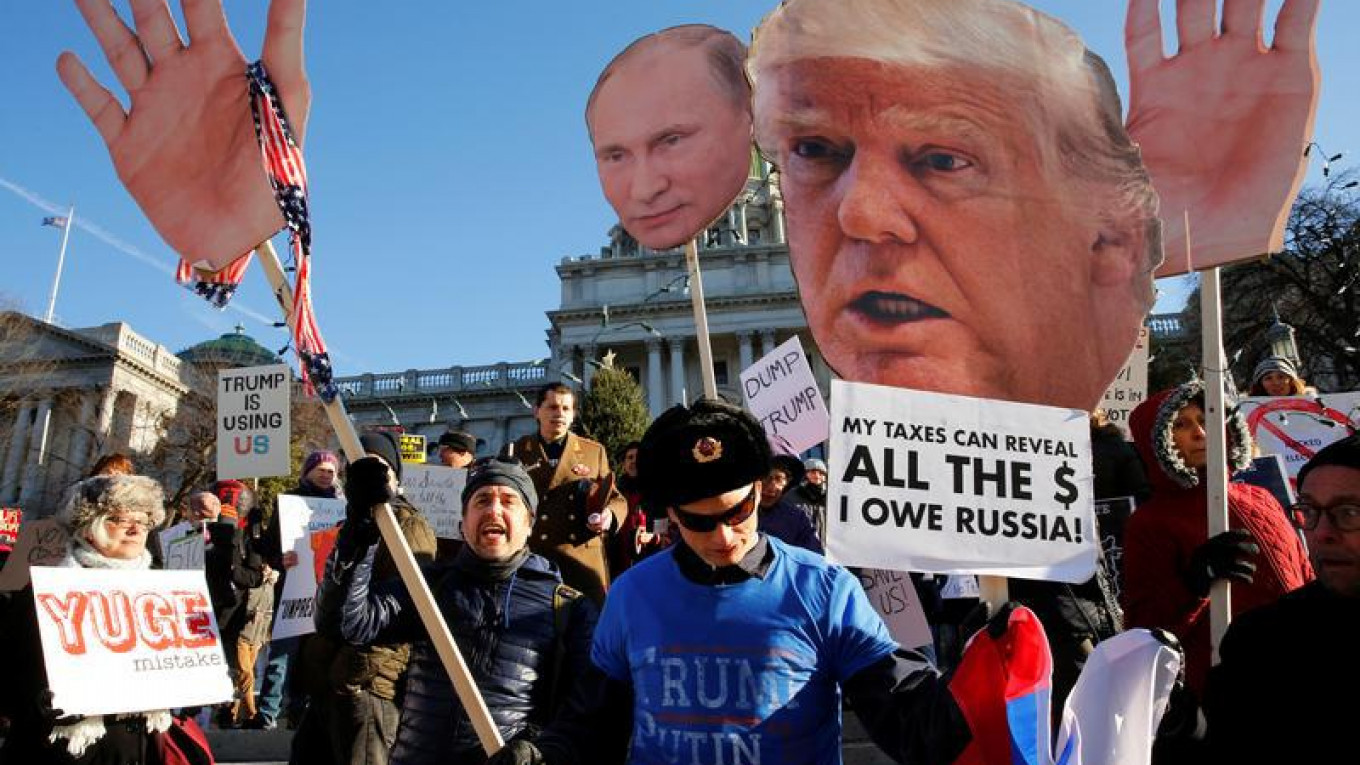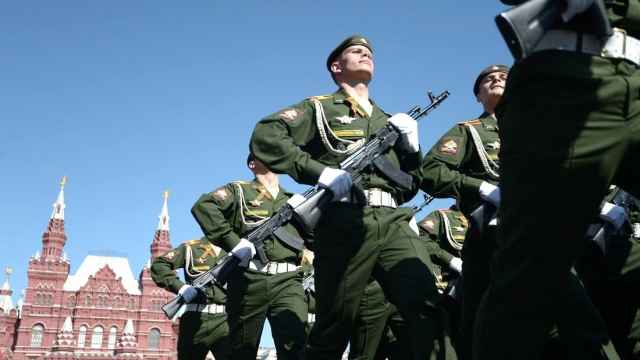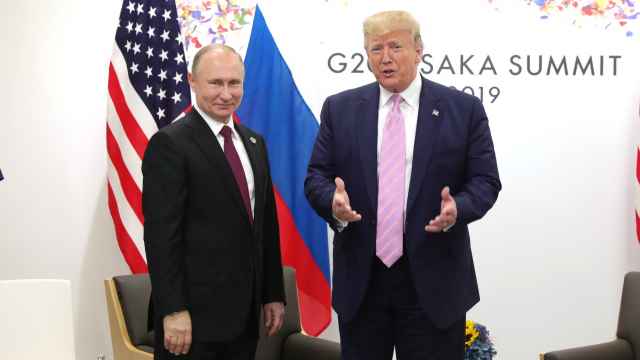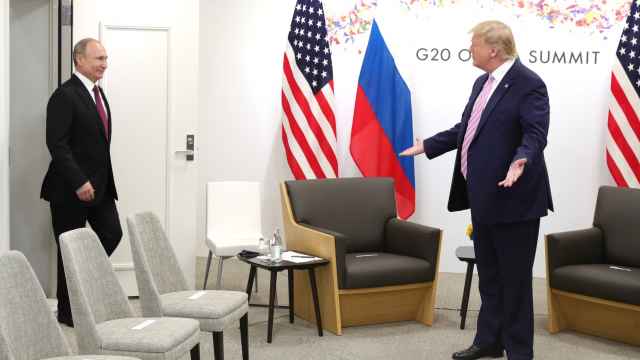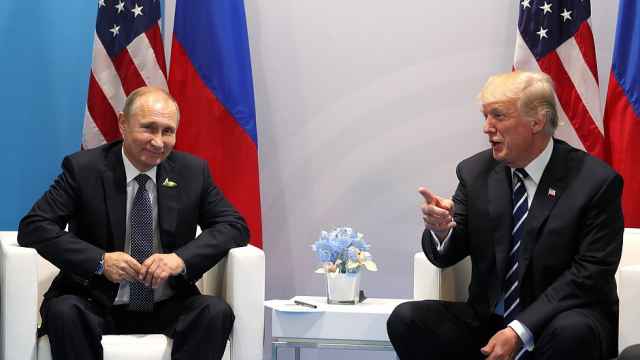At last, a smoking gun.
A Russian think tank known as the Russian Institute of Strategic Studies (RISI, in Russian), prepared and disseminated two reports to senior policy-making circles in Moscow as the 2016 U.S. presidential election drew to a close, Reuters reported Thursday. Those reports, which are classified, allegedly served as a playbook for Kremlin attempts to influence the U.S. election.
“Putin had that objective in mind all along,” one of the unidentified former intelligence officials was quoted as saying. “He asked [RISI] to draw him a roadmap.”
According to current and former U.S. intelligence officials cited by Reuters, the RISI documents were critical clues that lead the Obama administration to conclude the Kremlin attempted to undermine Democratic candidate Hillary Clinton’s presidential bid.
If this is how the U.S. intelligence community thinks, it explains a lot. There is another way to read these claims.
Ironically, RISI may have been more influential in Washington and Langley, Virginia than in the Kremlin. Allegations of Russian interference in the election are plausible, but claims of RISI’s role strain credibility. The idea of RISI influencing Russian policy is bunk, several foreign policy experts in Moscow – some with ties to the Foreign Ministry – told The Moscow Times.
“It is a retirement home for old intelligence officers and analysts” a source familiar with the situation at RISI said on a condition of anonymity. When a Federal Security Service (FSB) or Foreign Intelligence Service (SVR) hand gets too old, they send them into “retirement” at a think tank.
“Some are sent to RISI,” the source says, “and the ones who end up there are old, have lost their grip on reality, and are sometimes crazy.”
Questionable Influence
Not everyone agrees that RISI is where old spooks go to die. “It is a sanatorium for loonies,” says Vladimir Frolov, an independent Russian international affairs expert. But that is beside the point.
“No one makes policy based on what RISI writes,” he added. “They have no analytical capability for U.S. policy, and no experience in social media warfare. They just rehash open source media, and nobody reads what they write anyway.”
They operate much like any other think tank does, says Mark Galeotti, an expert on Russian security services at the Institute of International Relations in Prague. They exist to write reports and propose stratagems, but they are likely not so influential, he added.
“Yes, Putin appoints its director, but it doesn’t mean RISI is close to him, or especially powerful,” Galeotti says.
The outfit’s former director, Leonid Reshetnikov admitted as much in a March 2015 interview with online news outlet Lenta.ru. Ordinary people wrongly believe RISI “can just write something up, pass it on to Putin, who then looks at it and says: Great! Let’s act on this!” he said. Instead, the think tank is just one of many streams of analysis going to the Kremlin.
In 2015, Alexander Sytin, a former senior RISI analyst, wrote a damning article titled “On the Mechanisms of Foreign Policy Decision-Making in the Kremlin.” In it, he described the intellectual downfall of the institute after it was formally detached from the SVR and transferred to the Kremlin in 2009.
Ideological Extreme
When RISI was transferred to the Kremlin, Reshetnikov took the reigns of the think tank. Sytin credits him with driving the institute into the ground: “Reshetnikov’s contribution was not soldier-like discipline, but something entirely different.”
While spending time in the Balkans, Reshetnikov became deeply religious and obsessed with militant Christian Orthodoxy and the history of Russia’s White Guard.
“This transformation, generally acceptable for an ageing and very unwell person, was almost clinical in nature,” Sytin wrote of Reshetnikov. Whether or not Sytin was correct — he was, after all, a disgruntled ex-employee — his view seems plausible: Reshetnikov indeed espoused a deeply apocalyptic and conspiratorial worldview. Russia, he has said, is the Christian world’s only moral hope.
Reshentikov was ousted by presidential decree last year, and replaced by Mikhail Fradkov. The new director, according to one expert who has worked with RISI, was intended to help reform the institute. And while Reshetnikov may have presided over proposals to influence the U.S. election, “he loves to claim credit for things he had nothing to do with,” Frolov says.
If RISI under Reshetnikov has any legitimate claim to fame, it is for its outrageous annual ranking of the most Russophobic foreign journalists. The 2016 report has yet to be released, but in 2015 the honor went to the likes of New York Times bureau chief Neil MacFarquhar and The Telegraph’s Moscow correspondent Roland Oliphant.
RISI has also written reports criticizing other think tanks in Moscow for being too pro-Western.
“RISI does sit in on some state-organized meetings and writes policy papers, but don’t over-estimate the influence of these reports,” says the expert who has worked with RISI. “All think tanks write these, they get circulated to the relevant government bodies, and authors sometimes get a ‘thank you, this was very useful’ letter, but it doesn’t mean a thing.”
Falling For Chaff
Unfortunately, Western discourse surrounding allegations of Russian interference in the 2016 American election has waded into deeply conspiratorial waters. Now, when anonymous sources leak information on largely insignificant reports, purporting the documents to be critical pieces of a complex puzzle, the genuine truth can get lost in the noise.
Case in point: The U.S. intelligence officials quoted by Reuters suggest a timeline of RISI’s activities that makes little sense, according to Frolov.
“They quote a paper proposing policies in June 2016,” he says, “but the hacking and social media promotion of Trump had been going on for a year already, since at least mid-2015.”
Ultimately, this may actually strengthen the position of RISI and the Kremlin. If incontrovertible evidence of Kremlin interference is ever uncovered and made public, the authorities will likely brush it off in the same way RISI head Fradkov brushed off Reuter’s claims in a statement to the news agency.
“[I]n their conspiratorial consciousness the authors of this conceit [the U.S. intelligence community] did not weigh reality against their coveted fantasies,” he said.
A Message from The Moscow Times:
Dear readers,
We are facing unprecedented challenges. Russia's Prosecutor General's Office has designated The Moscow Times as an "undesirable" organization, criminalizing our work and putting our staff at risk of prosecution. This follows our earlier unjust labeling as a "foreign agent."
These actions are direct attempts to silence independent journalism in Russia. The authorities claim our work "discredits the decisions of the Russian leadership." We see things differently: we strive to provide accurate, unbiased reporting on Russia.
We, the journalists of The Moscow Times, refuse to be silenced. But to continue our work, we need your help.
Your support, no matter how small, makes a world of difference. If you can, please support us monthly starting from just $2. It's quick to set up, and every contribution makes a significant impact.
By supporting The Moscow Times, you're defending open, independent journalism in the face of repression. Thank you for standing with us.
Remind me later.



